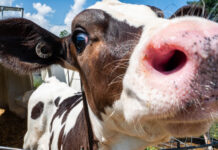Thanksgiving has become my favorite holiday.
It’s a time to gather with family and friends, have a nice meal, and catch up on family news.
No gift-giving stress, and except for preparing the food, it’s a few hours to unwind, watch a football game, and enjoy some birds on the feeders.
Oklahoma
I remember our first Thanksgiving in Oklahoma. I was a young professor at Oklahoma State still adjusting to a new job; we had friends, but no family nearby.
My wife suggested we host a big Thanksgiving dinner because most of our friends were in the same situation. It turned out to be a great day and remains one of our most memorable Thanksgivings.
Food
I’m sure we all have favorite dishes we prepare for the big meal. My personal responsibility includes making the gravy and the oyster filling. I get hungry just thinking about it.
So enjoy the day, the food, and the fellowship.
And if it’s within your means, donate some cash to a local church or food bank that puts on a big meal for those less fortunate.
Turkey
But let’s talk turkey for a minute — the wild version of the one gracing our tables.
It’s a large, impressive, and noble bird. Ben Franklin thought it should be our national bird.
Whenever I see a wild turkey I focus on its eyes. Invariably it sees me first because turkeys have incredible eyesight. You no sooner see a turkey approaching, and it’s gone. And as trees lose their leaves in the fall, the problem is exaggerated. Clearer lines of sight give turkeys an advantage.
The retinas in turkey eyes have seven different types of photoreceptors. They can detect movement at great distances. But it is one particular type of color-sensitive cone cell that gives turkeys almost super vision.
These cone cells are sensitive to ultraviolet (UV) light, so they see things that we cannot. Turkeys’ sensitivity to UV light puts humans at a disadvantage.
Even when motionless, we give ourselves away — our clothing can make a stationary watcher impossible to miss. Laundry detergents that “whiten and brighten” clothing leave behind a UV residue. And the more often items are washed with these detergents, the more UV residue they retain.
This is also sometimes true for new clothing, even camo gear. So whether wearing new field clothes or old favorites that have been washed many times, watchers almost glow to the eyes of turkeys.
One remedy is to wash field clothing with detergents that lack brighteners. Read the label.
Turkey vision
Turkeys also have excellent peripheral vision. Their eyes are positioned on the sides of their head giving them an approximately 270-degree field of view.
Combine that with a flexible neck they can turn almost completely around, and turkeys can see 360 degrees with just a slight turn of the head. It’s no wonder they see us so easily.
Foraging
One thing that can distract wild turkeys is food, especially acorns. Unlike deer and most other mammals, turkeys do not get fat enough to make it through the winter.
To avoid predators, they must fly to a roost at night. If they get too heavy, flight becomes a problem.
So turkeys make enough fat to get them through short spells of severe winter weather. This is remarkably adaptive behavior because turkeys are primarily ground feeders.
They scratch through ground cover and leaf litter searching for seeds, nuts, and dormant invertebrates. After a big winter storm, this foraging strategy becomes problematic.
Snow gets too deep to scratch through for food. After heavy snows, turkeys can remain in trees for days. They fast or move from tree to tree consuming a marginal diet of buds.
If turkeys spot a heavily used deer trail on the ground below, they sometimes descend for brief foraging bouts where the ground is accessible. But healthy turkeys usually have enough body fat to survive a week or more without leaving their roosts.
Thanksgiving may be all about friends, family and gratitude, but don’t forget to appreciate the origins of that amazing bird resting on the table.












